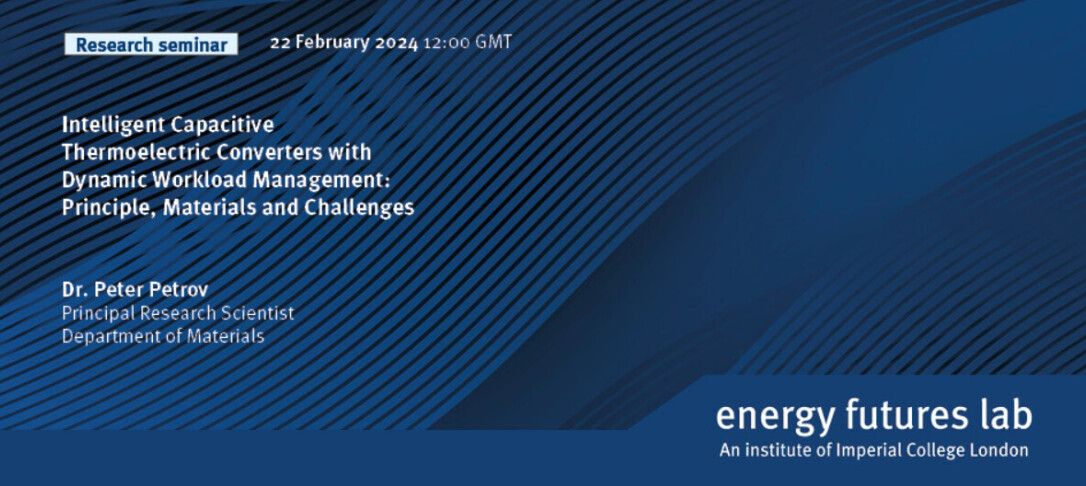
Intelligent Capacitive Thermoelectric Converters with Dynamic Workload Management: Principle, Materials and Challenges
Mobile devices are now an all-pervasive technology. A typical cell phone gives off around 0.2 Watts of heat when idle, and closer to a Watt while making a call or running processor-intensive applications. The heat generated by a tablet or laptop is much higher. Almost all of this heat is never recovered.
In this paper, we will present the concept of a novel capacitive thermoelectric converter (CTEC) attached to a digital system/device with dynamic workload management. We will discuss our latest achievements in developing thin film materials with enormous temperature non-linearity that could be used to build such converters. Due to the CTEC’s small heat mass, it is possible to achieve a rapid heating-cooling cycle, hence, one can recover more wasted heat per unit of time. We will discuss the requirements imposed on the active materials and will compare them with our current results.
Biography:
Dr Peter K Petrov is a Principal Research Scientist at the Department of Materials at Imperial College London and Royce Institute Technology Platform Lead for Thin film device materials. He holds an MSc (Physics and Engineering) and a PhD (Technical Sciences) from the St Petersburg State Electrotechnical University (LETI). Before his appointment at Imperial College (February 2007), Dr Petrov worked as a Senior Research Scientist at the London South Bank University and the Chalmers University of Technology (Gothenburg, Sweden).
Dr Petrov has more than 25 years of experience in the development of thin films, multilayer structures and devices. He leads an enthusiastic research group working towards the development of functional oxide and nitride thin films, and the fabrication of microwave and plasmonic devices for communication, energy harvesting and biosensing. He has been involved as a PI or co-PI in several EPSRC, Innovate UK and industry-sponsored projects.
About Energy Futures Lab
Energy Futures Lab is one of seven Global Institutes at Imperial College London. The institute was established to address global energy challenges by identifying and leading new opportunities to serve industry, government and society at large through high quality research, evidence and advocacy for positive change. The institute aims to promote energy innovation and advance systemic solutions for a sustainable energy future by bringing together the science, engineering and policy expertise at Imperial and fostering collaboration with a wide variety of external partners.